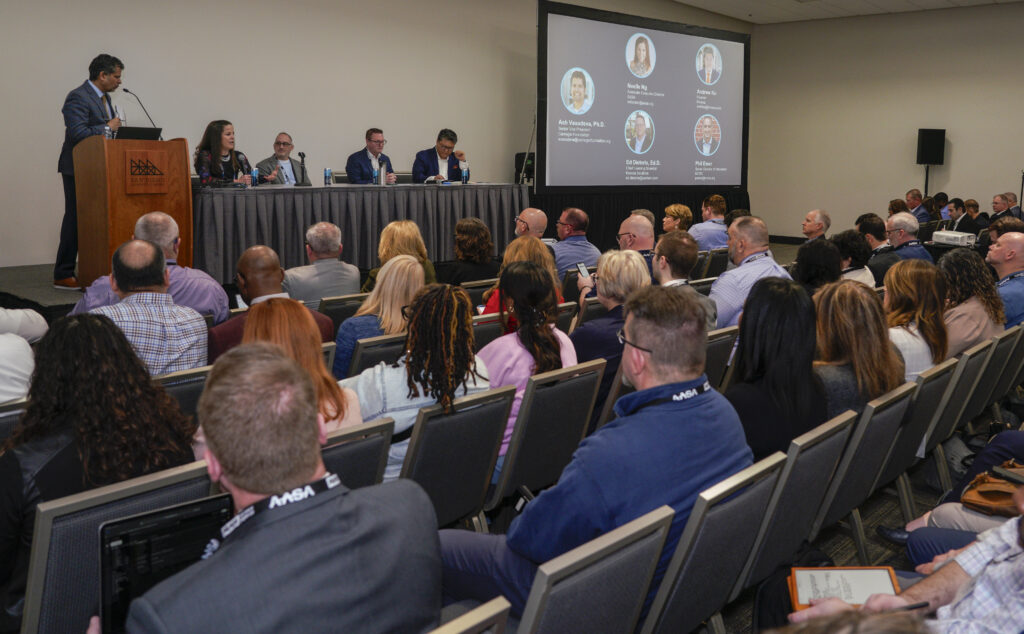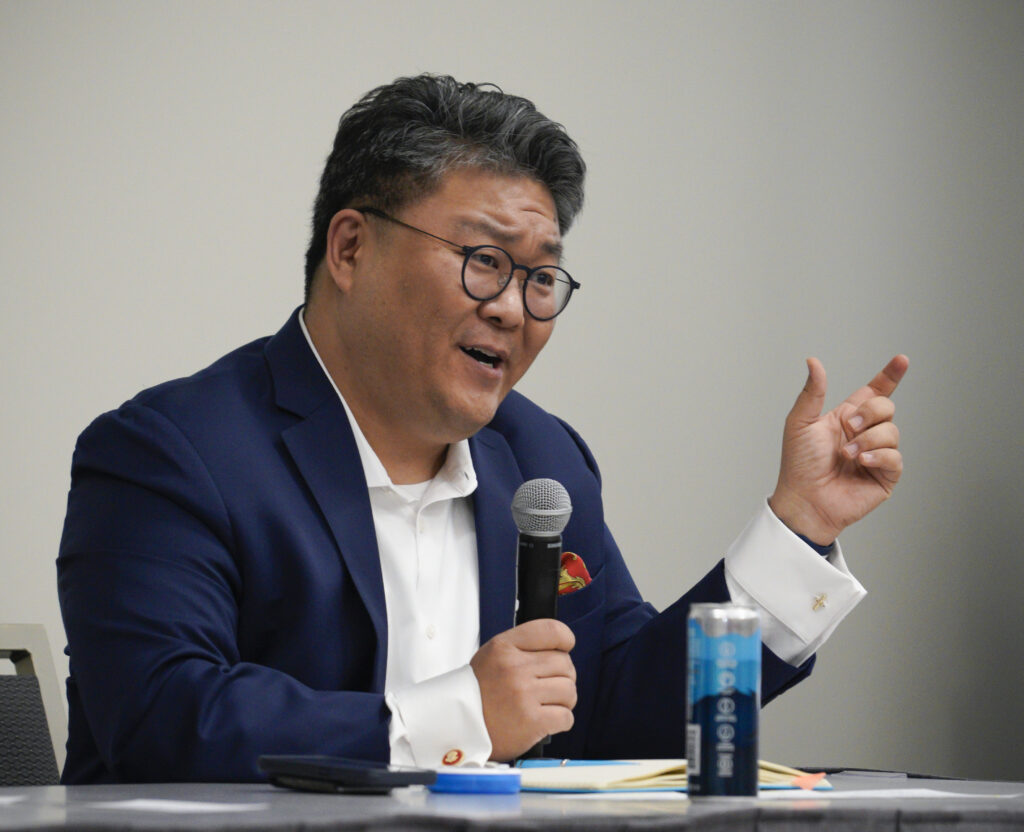Artificial intelligence has become an omnipresent, innovative technology that is leaving educators wondering, “Will AI disrupt schools? And how?”
At an AASA conference session on Thursday, “AI in Schools: Bridging Policy, Innovation Practices, and Measuring Impact for Districts,” Ash Vesudeva, senior vice president at the Carnegie Foundation, asked this question before addressing it himself. “The jury is still out” on AI in education, he added, before offering a more fitting question: How can K-12 educators “use and harness the power of AI to … prepare students for college, career and civic life?”
Before yielding to fellow panelists, Vesudeva speculated how schools might embrace this new technology and then adapt it to what already exists, thereby actively shaping the role of AI in the classroom. He asked participants to consider this, all in the name of normalizing the conversation of AI.
Participants had a chance to then put his words into practice and ask the panel questions concerning a variety of topics and their association with AI such as student data and sustainability. One participant in particular was curious about how launching an AI policy in a school or district might look like.
So, now what? Now that AI is a part of the conversation, what steps can educators thus take to harness the power of AI?
Noelle Ellerson Ng, associate executive director for advocacy and governance at AASA, emphasized that “policy is always a path.” She then expertly illustrated how policy provides guardrails and lights the path for schools and districts to implement and use AI to their benefit.
Ellerson Ng recognized how we cannot deny access to AI to our students, saying AI needs to be accepted as a tool for educators to enhance and amplify teaching and administration practices.

Phil Emer, senior director of innovation at MCNC, expanded on the importance of students having reliable and safe access to AI software so that educators may inform students about its proper use. He referenced his work providing safe internet access to schools. He also recognized the ethical ramifications that AI can have, emphasizing that students and teachers are the ones who drive the discussion concerning AI in the classroom.
When used correctly, AI is an asset. Andrew Ko, founder of Kovexa Solutions, said he foresees schools where teachers and administrators can collaborate to use AI technology to their advantage.
Ed Dieterle, chief learning scientist at Kovexa Solutions, corroborated Ko’s sentiment, citing how AI can be used to amplify the already necessary practices for success instruction.
He made it clear that educators should not discourage but rather promote the use of and access to AI technologies.
(Bradley Beggs is a reporter for Conference Daily Online and a master’s student at University of California at San Diego.)

